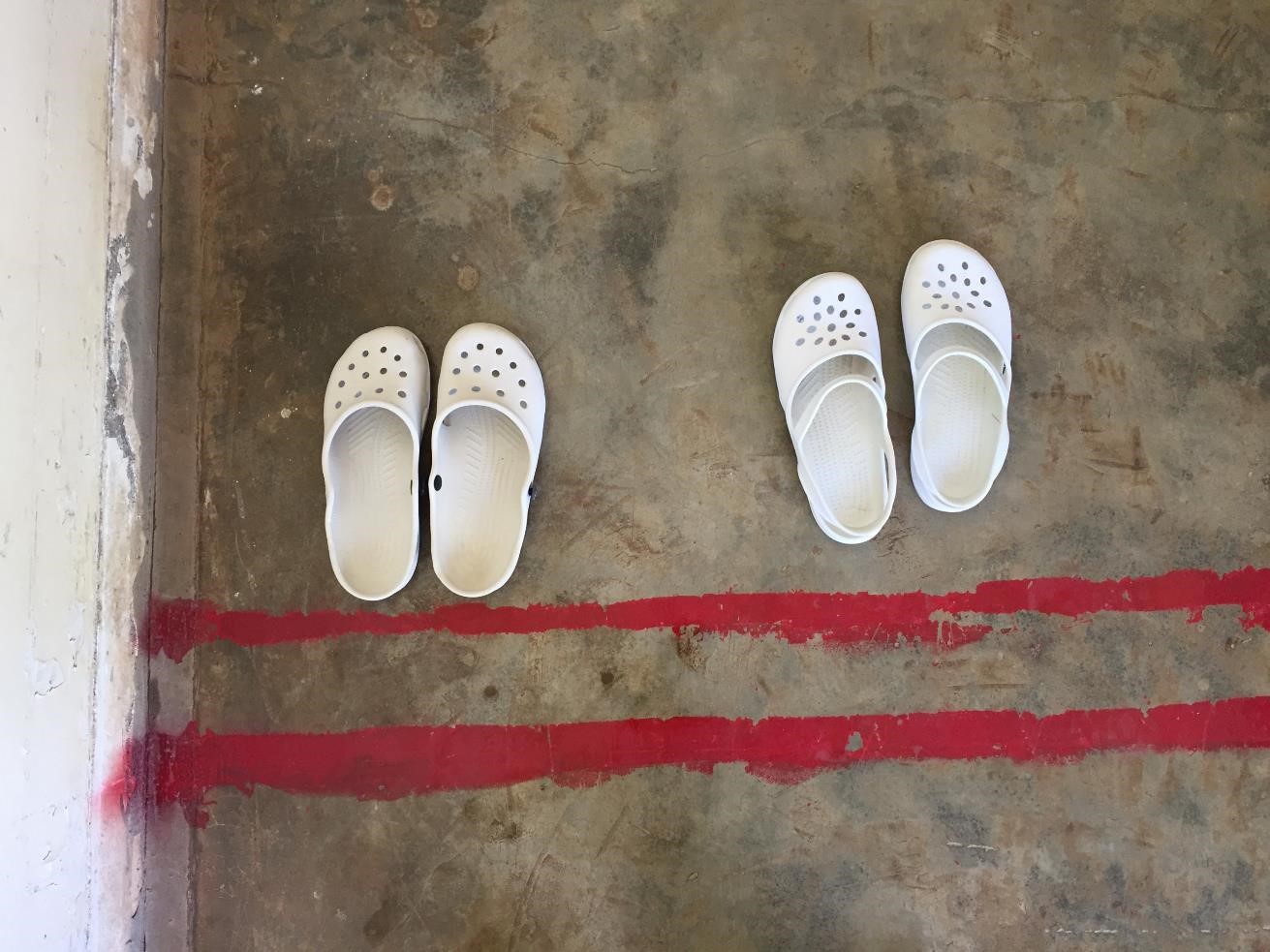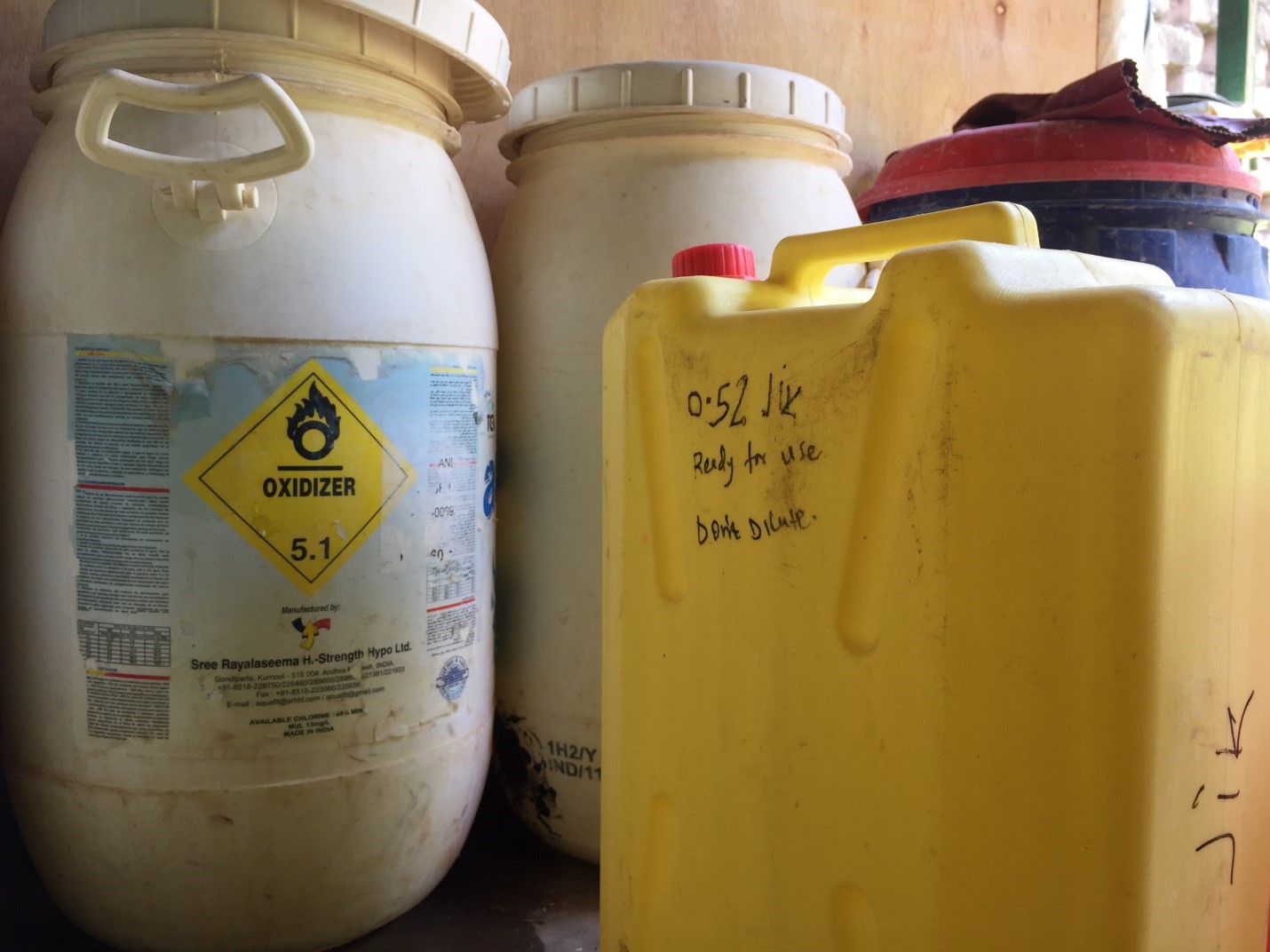
PATH launches Global Community of Practice on decentralized chlorine production

Healthcare facilities employ various approaches to limiting the introduction of external pathogens to wards. Photo: Adam Drolet/PATH.
What would run through your mind if you showed up to a healthcare facility to receive medical care and learned that for the past month the facility has not had any chlorine, which is recommended for disinfection and cleaning? Would you take a closer look to see if surfaces, equipment, and instrument were clean? Would you feel safe? Would you still seek care at that facility or travel to a different healthcare facility?
Unhygienic surfaces are a primary contributor to hospital-acquired infections, which affect an estimated 15.5% of patients in low- and middle-income countries, according to the World Health Organization. Chlorine is an effective chemical disinfectant, widely recommended to prevent and control infections, yet weak supply chains and insufficient medical supply budgets result in limited chlorine inventory and, in many cases, chlorine stock-out.
 Healthcare facilities rely on chlorine (commonly known as Jik in many African countries) for disinfection. Photo: Adam Drolet/PATH.Electrolytic chlorine generators offer an attractive solution to addressing the key root causes of limited chlorine supply and stock-outs in healthcare facilities. The ability to produce chlorine using simple inputs—water, salt, and electricity—at the push of a button make these devices well-suited for low resource settings. When integrated into infection prevention practices and water treatment services, chlorine generators have the potential to significantly improve the quality of and trust in those services. Governments and organizations are increasingly turning to electrolytic chlorine generators for decentralized chlorine production.
Healthcare facilities rely on chlorine (commonly known as Jik in many African countries) for disinfection. Photo: Adam Drolet/PATH.Electrolytic chlorine generators offer an attractive solution to addressing the key root causes of limited chlorine supply and stock-outs in healthcare facilities. The ability to produce chlorine using simple inputs—water, salt, and electricity—at the push of a button make these devices well-suited for low resource settings. When integrated into infection prevention practices and water treatment services, chlorine generators have the potential to significantly improve the quality of and trust in those services. Governments and organizations are increasingly turning to electrolytic chlorine generators for decentralized chlorine production.
In response to growing use and demand, PATH launched the first Global Community of Practice (CoP) on decentralized chlorine production. This CoP aims to be an international consortium of civil society organizations, private-sector companies, and individuals committed to advancing innovative chlorine generation technologies and service delivery models for disinfection and water treatment. The CoP will function as a global advocacy, networking, and learning alliance, aiming to stimulate collaborative and transparent discussion among partners on lessons learned, evidence gaps, and candid feedback on challenges faced through the deployment and use of on-site chlorine generators.
The inaugural virtual meeting in May featured a presentation on an innovative chlorine generator (Aqua Research STREAM Disinfection Generator); an overview of a Catholic Relief Services project to eliminate chlorine stock-outs in healthcare facilities in Ghana, Liberia, and Burkina Faso; and an overview of a novel digital data transmission system that will allow individual chlorine generators to send performance data via cellular networks for remote monitoring. 51 participantss from 12 countries represented nongovernmental and multilateral organizations, private sector manufacturers, governmental leaders, and academia. A recording of the event can be found here along with the slides presented.
Moving forward, the CoP will meet quarterly and cover topics related to technologies, regulatory/supply chain issues, systems integration and implementation models, evaluation approaches and monitoring systems, and advocacy needs. Interested individuals and organizations can reach out to Adam Drolet (adrolet@path.org) for more information regarding the CoP and future participation.


